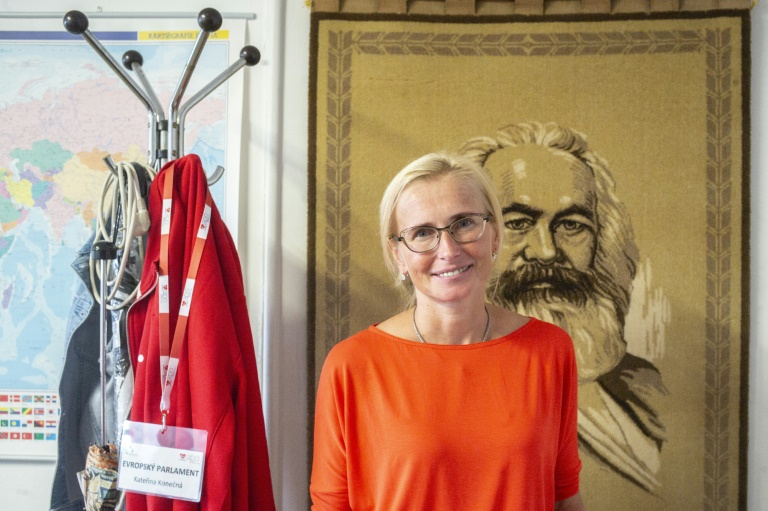A video clip tagged “farewellcomrades” has gone viral ahead of this week’s Czech elections as the Communist Party faces a parliamentary wipe-out, 32 years after being toppled in the 1989 Velvet Revolution.
The clip features a queue for food reminiscent of the long lines seen during the former Communist command economy in the then Czechoslovakia between 1948 and 1989.
More than three decades since Czechs overthrew the regime, the party now risks crashing out of parliament for the first time since World War II.
“Their voter base is dying out or deserting them for other parties,” said Otto Eibl, an analyst at Masaryk University in the second Czech city of Brno.
“And they’re obviously not able to revamp themselves in a way that would ensure their survival,” he told AFP.
Opinion polls ahead of the parliamentary election show that the Communist party risks failing to muster the five percent voter support required for any political party to enter parliament despite its efforts to woo young voters born after Communist rule.
It is also fighting with something of an image problem for its far-left credentials after giving support to the minority government of embattled billionaire Prime Minister, Andrej Babis.
The Communist Party of Bohemia and Moravia — the party’s official name — already suffered major losses in regional elections last year.
– Protest status gone –
Katerina Konecna, a Czech Communist member of the European Parliament, admits that her party has failed to adapt to a pluralistic democracy in which “parties that can sell themselves win”.
Its current chairman, Vojtech Filip, who has been at the helm since 2005 and has vowed to quit after the election, joined the party in 1983.
Little has changed during his tenure.
Three years ago, the Communists agreed to an offer from Babis to prop up the government his populist ANO (YES) party formed with the left-wing Social Democrats.
An agricultural and chemical products mogul, Babis has been hit by allegations made in the Pandora Papers that he stashed cash in tax havens and by accusations of conflict of interest.
The Communists’ support for Babis was the closest they came to power since 1989, after spending three decades in opposition, but it may well have been their political swan song.
“By practically joining the government, the Communists lost their status of a protest party,” said Josef Mlejnek, an analyst at Charles University in Prague.
“There are now more active protest parties, and besides, Babis stole a part of their retired voters,” he told AFP.
– The last stop? –
The populist prime minister, a former Communist listed as a secret police collaborator in the 1980s, has been wooing voters with pension hikes and other perks.
“He’s a huge rival and a huge problem. Andrej Babis has money and great marketing staff, which is something the Communist Party lacks,” Konecna said, standing next to a tapestry with a large portrait of Karl Marx in her Prague office.
Konecna, who boasts 20,000 followers on Facebook, knows that young blood is crucial.
She is one of the party’s hopes for the future — and possibly its new head — but faces the mammoth task of shoring up waning membership and voter support.
“It won’t be easy, but I already have a team of young communists who are working hard for the party,” she said.
But both Mlejnek and Eibl agree that if the Communists are ousted from parliament, they are unlikely to ever return.
“I think that would be the last stop for the Communists,” Eibl said.










